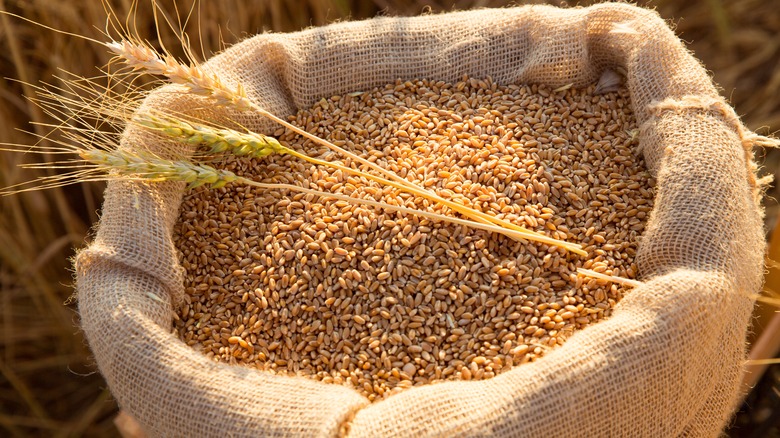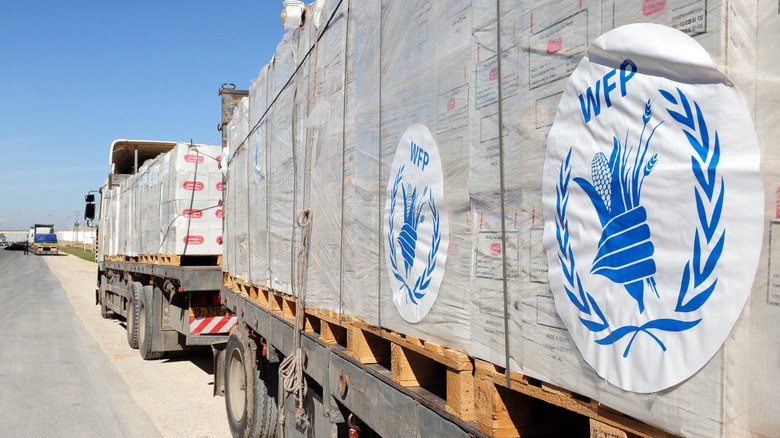How The US Is Attempting To Ease Russia's Grain Deal Concerns
The U.S. has denied Russia's claims that it is being cheated by the deal it reached with Ukraine to allow food and fertilizer exports out of the Black Sea. According to Radio Free Europe, President Vladimir Putin's has accused the U.S. and its NATO allies that western sanctions have hindered Russia's food and fertilizer shipments. The U.S. State Department responded by stating, "We're seeing no disruption in Russia's ability to send food to market. The fertilizer is still reaching markets at the same rate that it always has," and insisting that sanctions have never targeted Russian grain and fertilizer exports.
In addition, Russia has complained that grain being exported from Ukraine, under the terms of the so-called July, 2022, "grain agreement" has been going primarily to European countries, as Reuters notes. However, these allegations have been dismissed as "misinformation," by James O'Brien, head of the State Department's Office of Sanctions Coordination.
The deal, which has faced uncertainty since the day after it was approved, was reached largely on the grounds of providing food to poor countries that rely on Ukrainian grain. While Russia has complained that the grain has benefitted Europe more than countries in Africa, Asia, and the Middle East, Euronews reports that U.N. figures show only 36% of the grain leaving the Black Sea has gone to Europe. The U.N.also reported that 27% of the grain reached countries in Asia and the Middle East, while 17% has gone to African nations. An additional 20% has been sent to Turkey, the deal's mediator, where it may be shipped to countries on all three continents after being milled into flour.
Tenuous deal challenged
Overall, the lift of Russia's blockade on Ukrainian ships has already allowed for the shipment of 2.3 million tons of grain as well as products like sunflower oil and soybeans. In addition, more than 37,000 tons of wheat are set to ship out soon for Yemen courtesy of the World Food Program.
Unfortunately, the deal is only valid through November, and with Russia already protesting, experts fear it may not be renewed. Russia's complaints have coincided with a major shift in the fighting in September 2022, with Ukrainian forces reclaiming significant territory previously seized by Russia in the Kharkiv region (per CNN).
Russia's war with Ukraine has caused food prices to spike around the world and has led to severe shortages in poorer countries where Ukraine had been responsible for the majority of their grain supplies. Reuters notes that Russia's complaints are likely meant to divert blame for the situation, however, U.S. officials are not biting. Instead, they are "working in good faith" to address Russian concerns and to make it clear that no one is prohibited from buying Russian grain or fertilizer.

